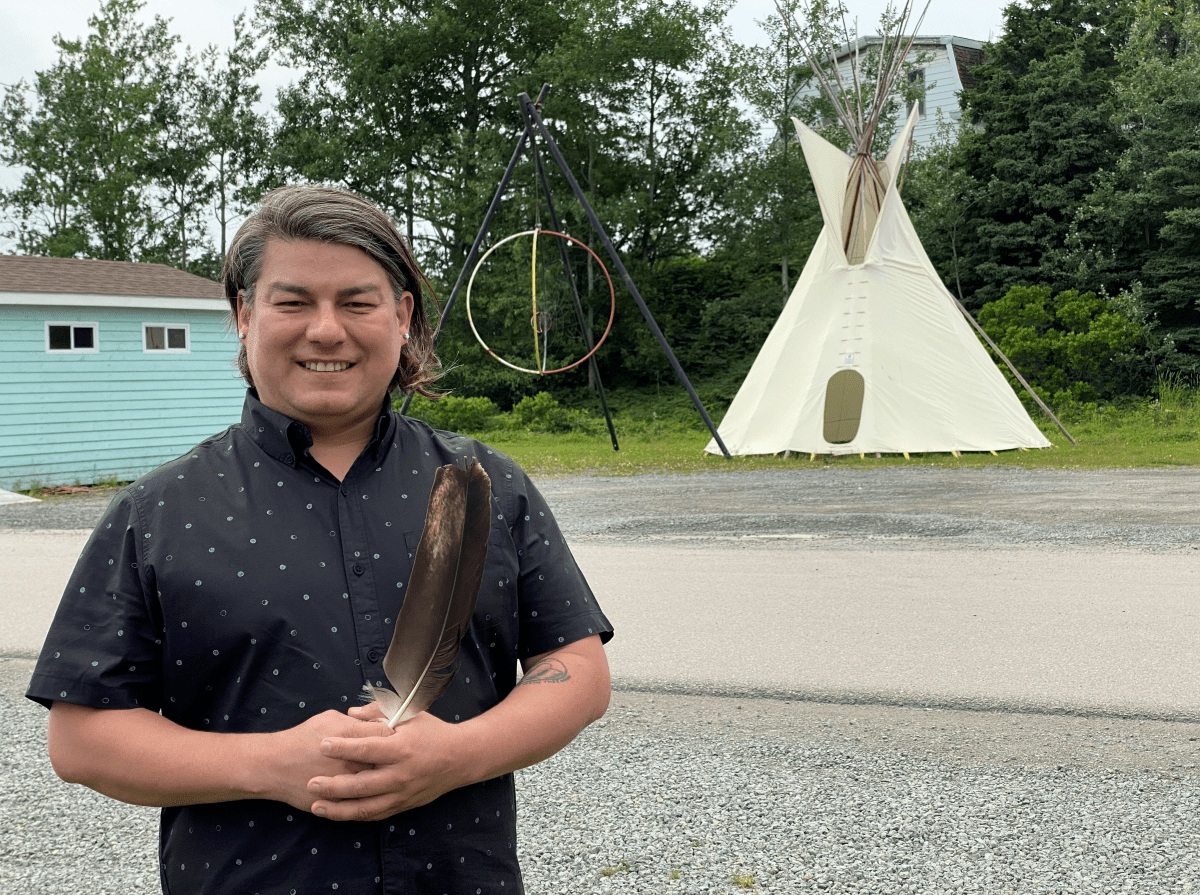The Truth and Reconciliation final report calls on the government “to establish, as a statutory holiday, a National Day for Truth and Reconciliation to honour Survivors, their families, and communities, and ensure that public commemoration of the history and legacy of residential schools remains a vital component of the reconciliation process.”

Thursday is the first observance of the day here in Mi’kma’ki — a day created, as it states, to honour and to remember. It’s a day that goes beyond the orange shirt you may be wearing today, a day to put the horrors of Indigenous genocide out in public, unapologetically.
The residential school system caused absolute harm to Indigenous children for over a century in Canada, with the last one closing in 1996. The harm still exists today throughout our communities and survivors still exist today.

A day to honour the survivors’ legacies is the least we can do to move forward together. Here in Mi’kma’ki, we have a lot to do before Truth and Reconciliation can truly happen. This day should not be about having a day off for the sake of a day off. It should be about settlers actively learning about the atrocities committed within the walls of these institutions.
There are many great resources out there to learn about the legacy of residential schools. Your first start should be the Truth and Reconciliation Commission’s final report. It gives you firsthand information, concisely and unapologetically.

Get daily National news
Being the son of a residential school survivor, I grew up hearing my mother’s experiences only when there was a lesson to be taught from it. Survivor accounts are valuable beyond words; they are their lived experiences of a system that took so much and should never have existed. The experiences my mother shared were horrific and something no child should go through. Her experiences and life afterward shaped who she was and shaped who I am today.
- High blood pressure drug recalled over low blood pressure pill mix-up
- ‘Doesn’t make sense’: Union files labour complaint over federal 4-day in-office mandate
- Canadian Tire ordered to pay nearly $1.3 million for false advertising
- Ottawa gives Canada Post a $1.01-billion loan amid ongoing financial struggles
I became aware of the horrors of the residential school at a young age, which is commonplace for Indigenous folks across this country. For the most part, residential schools were quickly forgotten by the general public, an event in our “distant past.”
With only roughly nine out of the 94 calls to action implemented from the TRC, it is apparent that we have a lot of work to be done on the road to reconciliation. That road that does not need to be a long one — it’s a road that starts at home, with your family, your friends, and folks you know.
Conversations should be taking place well after the orange shirt is back in the drawer for another year. These conversations are vitally important to knowing the truth, which can be adapted into age-appropriate content for younger children. It cannot be stressed enough to go above and beyond in using and sharing content about residential schools that are written and produced by Indigenous authors and artists. Our history is best relayed by Indigenous people.
Thursday is the start of a movement in our country. Let’s keep that momentum going throughout the year. Sept. 30 is a day to learn about residential schools. It should be a tough day, and an uncomfortable day for settlers that challenges you. It should challenge you to change your thinking toward Indigenous issues, to hold our elected officials accountable for their inactions, and to be the difference for the next generation, for they are our future.
The ugly truth is Indigenous children were murdered to achieve assimilation and submission of an entire race. We must honour their legacy; we must learn from them, so this doesn’t happen again. Their voices are now being heard from sea to sea to sea. Let’s listen to them.

I, as a Mi’kmaw person, know the importance of remembering the children that didn’t come home. My entire life I heard the stories from my family. On Thursday, First Nations, Métis and Inuit across this land will be reflecting on the legacy of the residential school system and the continued impact it has today and will have for generations to come.
We still have a lot of work to do regarding systemic racism, the Indigenous housing crisis, continued land theft, and the unprecedented incarceration and police harassment of Indigenous peoples.
So having a “stat holiday” that isn’t recognized in all provinces is the bare minimum of a start. Can we do better? Yes.
So, I challenge the readers of this to start a journey of self-education so the truth can be fully understood. This day is a day of reflection, of mourning and a day to remember. Msit No’kmaq.
Bryson Syliboy is from Sipekne’katik First Nation, and now lives in Tui’knek (Port Hawkesbury). He is the son of a residential school survivor. Bryson is a grassroots Mi’kmaw activist who is reconnecting with his culture and language. He is passionate about politics, environmental issues and anti-racism education.
The Indian Residential Schools Crisis Line (1-866-925-4419) is available 24 hours a day for anyone experiencing pain or distress as a result of their residential school experience.







Comments